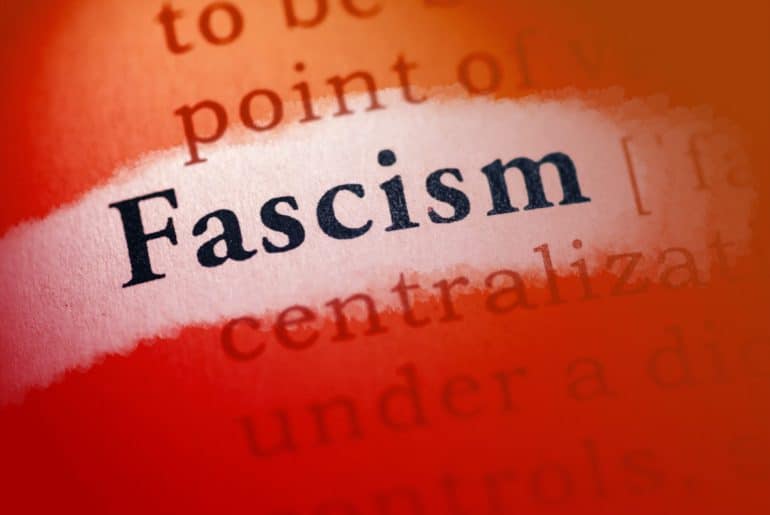We use it like a two-rupee ball-point pen. Read on to learn what it actually means to be a ‘fascist’ in yesterday, today, and the times to follow.
It is a Saturday morning, and you have the liberty of not worrying about the 8 a.m. commute. Even before fully opening both your eyes, you open your cell phone to find memes, pieces of news, and social media posts with words like ‘fascism’ muddled casually in between, all in caps. Like a good 2018 internet-accessing influenced mind, you provide traction to the aforementioned and add your stamp of approval to the opinions.
This is not to say that the regimes or individuals being labelled fascist are not so. But it is important to understand where the label has its roots, how it has grown, and what its modern version essentially looks like. Especially in tumultuous times like ours, where the morning tweets have the leader of the free world making racist statements on international forums, with humans being lynched over cows, and the student politics has candidates wanting to protect the university from the LGBTQ community in lieu of the Section-377 verdict.
Mussolini used the word ‘fascism’ for the first time in 1919 and it comes from the Italian word ‘fascio’, which translates to a militant brotherhood. The play of the term has shifted considerably over time, but it is not an uncomplicated process to apply one fitting definition for the term. The one thing that is common to all beliefs about fascism is that it rests on the creation and the cultivation of an almost-alternate reality conceived from lies. So, a person in power, or without it, may try to convince you that apples are actually oranges, and provide you fallacious reasons that start feeding off a convenient majority’s belief system, then that is an apt understanding of fascism’s ideals.
The ideals of fascism have one or, usually, multiple goals out of these- anti-liberal, anti-socialist, violently exclusionary, expansionist nationalist. Robert Paxton at Columbia University is considered the father of fascism studies, and his definition for the aforementioned agendas of fascism excludes one significant sentiment of modern-day fascism, which is, the dynamic of undisputed power and the retention of it. To do so, the practice of fascism borrows the techniques of all the ideologies it is theoretically against. For example, it doesn’t emphasise on class conflict like the socialists do, but it gives preference (quite a lot of it) to racial and, by extension, national interests.
The ‘national interest’ picture that your typical fascist paints require the creation of an embellished idea of a ‘glorious past’. They romanticise the idea of a gone time of prosperity and joy for a nation so well it may put your epical bards to shame. Since it has beloved sentiments for one race or nation on an extreme end of a wide spectrum, like our good friends in the right-wing politics do today, fascism ideals require a manipulative vision of victimisation, resulting in superiority complexes. It requires one race, for example, the whites in 19th-century America, to feel wronged, threatened, superior and/or victimised, through a widespread use of disfigured realities. Our good friends in the Ku Klux Klan represented fascism quite well, before it became a real term in the 20th-century.
The modern world views fascism as the politics of intolerance and authoritarianism with a dollop of conservativism to spice things up, but it is significant to understand that the fascist finds their audience in a malleable mindset. Like all appalling notions that toxify democracy at its roots, fascism in politics today is skillfully perpetrated by establishing and then playing on power asymmetry in a diverse country.
As individuals who are on the internet, bombarded by a constant flow of information and (mis)representation of serious ideals, throwing around terms like ‘fascism’ must frighten us. It must frighten us because it is a callous wrong on our parts to negate the struggles of millions who lived through the worst of fascism, if we are wrong. If we are right, it must frighten us to only talk about it in confined, unreactive spaces when it is already in our homes, ready to burn the truth down.
Feature Image Credits: Slate
Anushree Joshi
[email protected]




Comments are closed.